Phison Displays 8TB M.2, 16TB SATA SSDs at CES 2020
Phison kicks capacity up a notch with its newest line of SSD controllers.
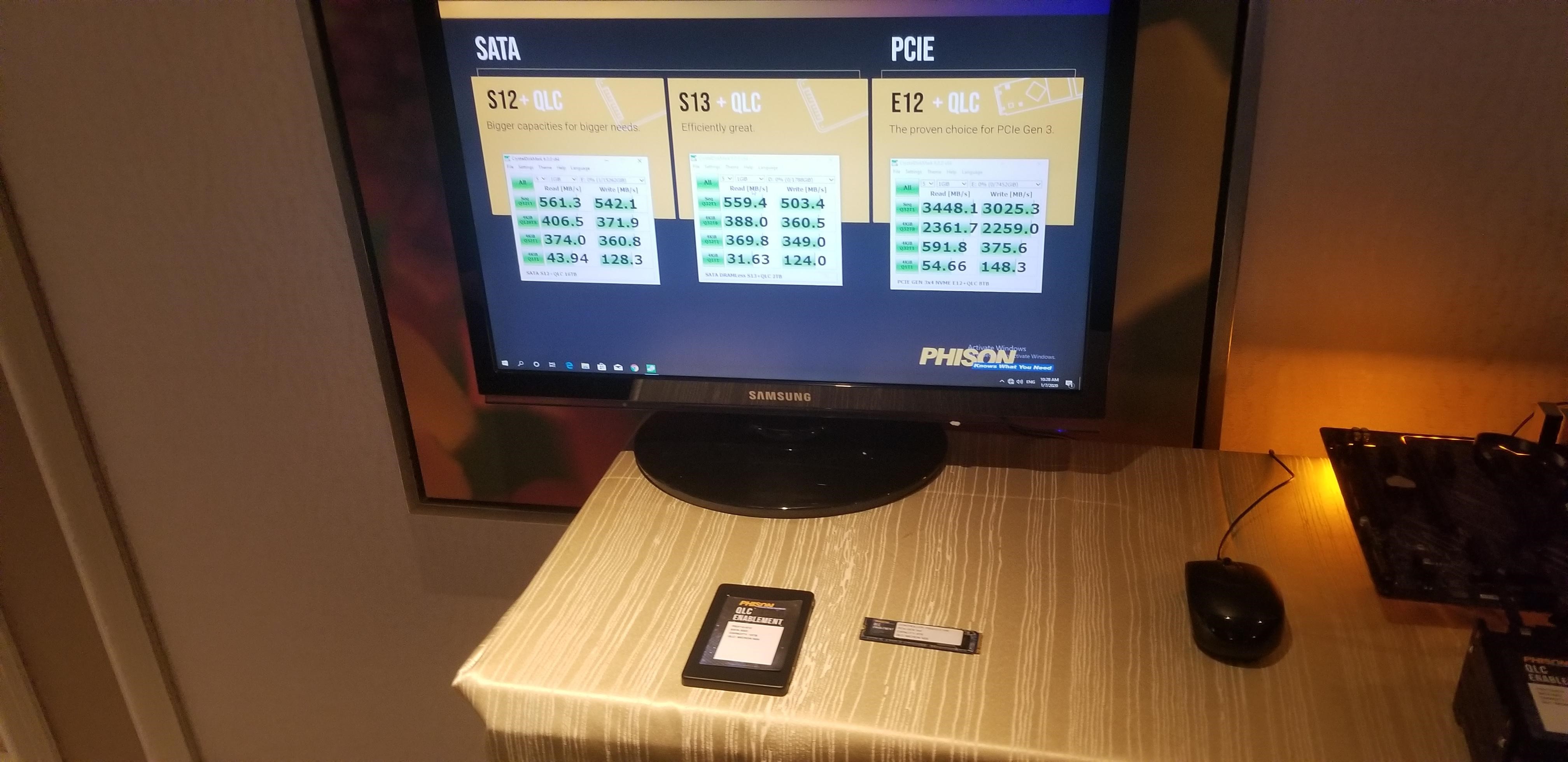
Phison announced here at CES 2020 that it has reduced the footprint of its SSD controller to enable incredibly capacious SSDs, like the 8TB M.2 NVMe and 16TB SATA SSDs the company had on display here at CES 2020. The company also demoed a new innovative tiering technique from Enmotus that's infused into some of its latest SSD controllers.
Phison was the first company to bring a PCIe 4.0 SSD controller to market, and its timing couldn't have worked out better given the arrival of AMD's Ryzen and Threadripper platforms that paved the way for PCIe 4.0-equipped systems. The third-party SSD controller manufacturer has long powered many of the SSDs we see from the big OEMs, like Crucial/Micron, but it also feeds smaller players, like Adata and Kingston, among many others. The company's exclusive PCIe 4.0 support on its SSD controllers pushed the company ahead of many competitors, including OEMs like Samsung and other third-party controller vendors, like SMI.
Phison is seeing some new competition from relative-newcomer Innogrit, which powers a new PCIe 4.0 SSD from Adata, and Samsung, which reveled its long-awaited 980 Pro with the PCIe 4.0 interface here at CES, but Phison is already pushing forward with development of a new controller that will boost its performance, but of equal importance, also repackaged its existing controller to bring about big capacity increases in smaller SSDs.
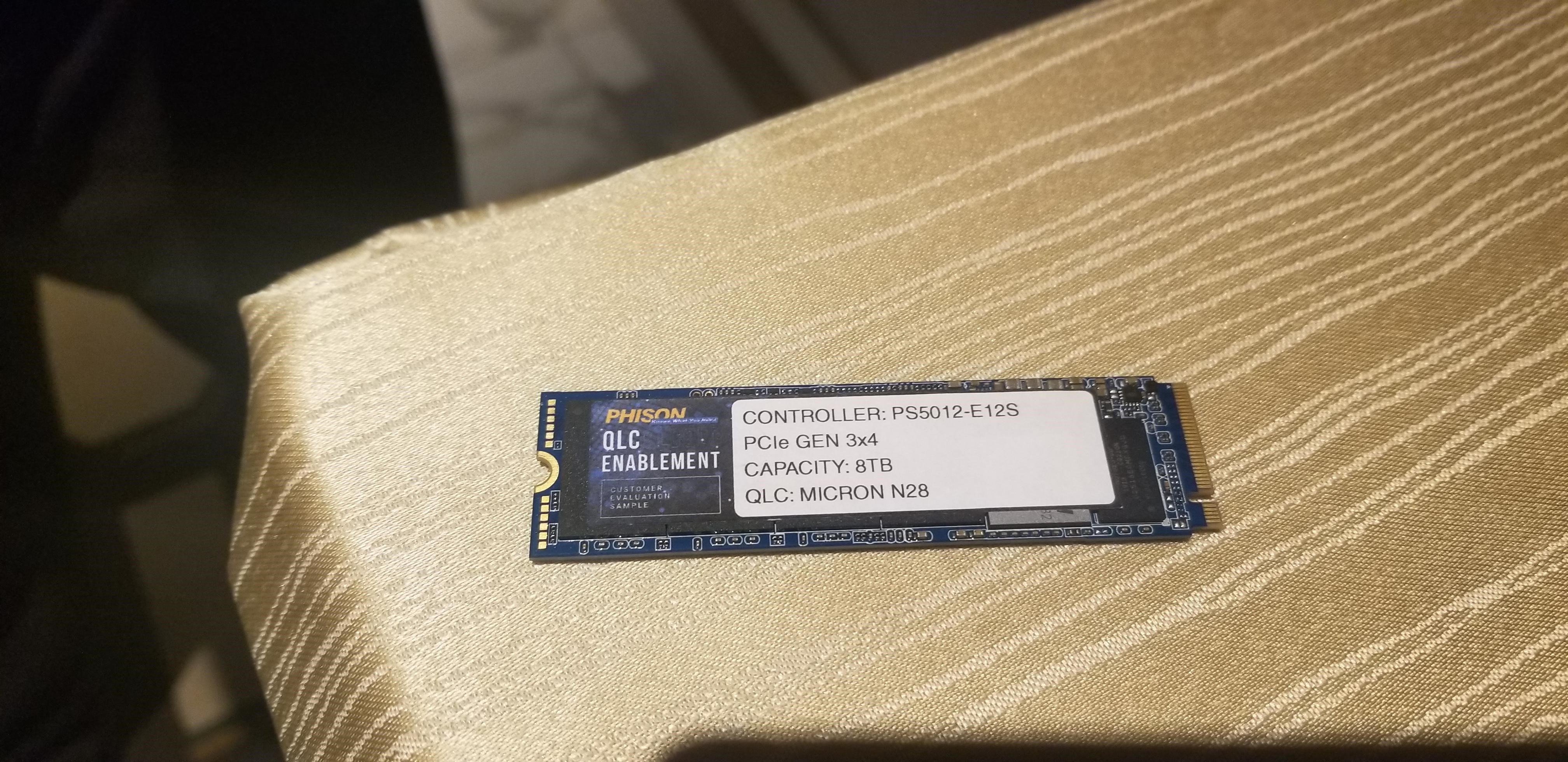
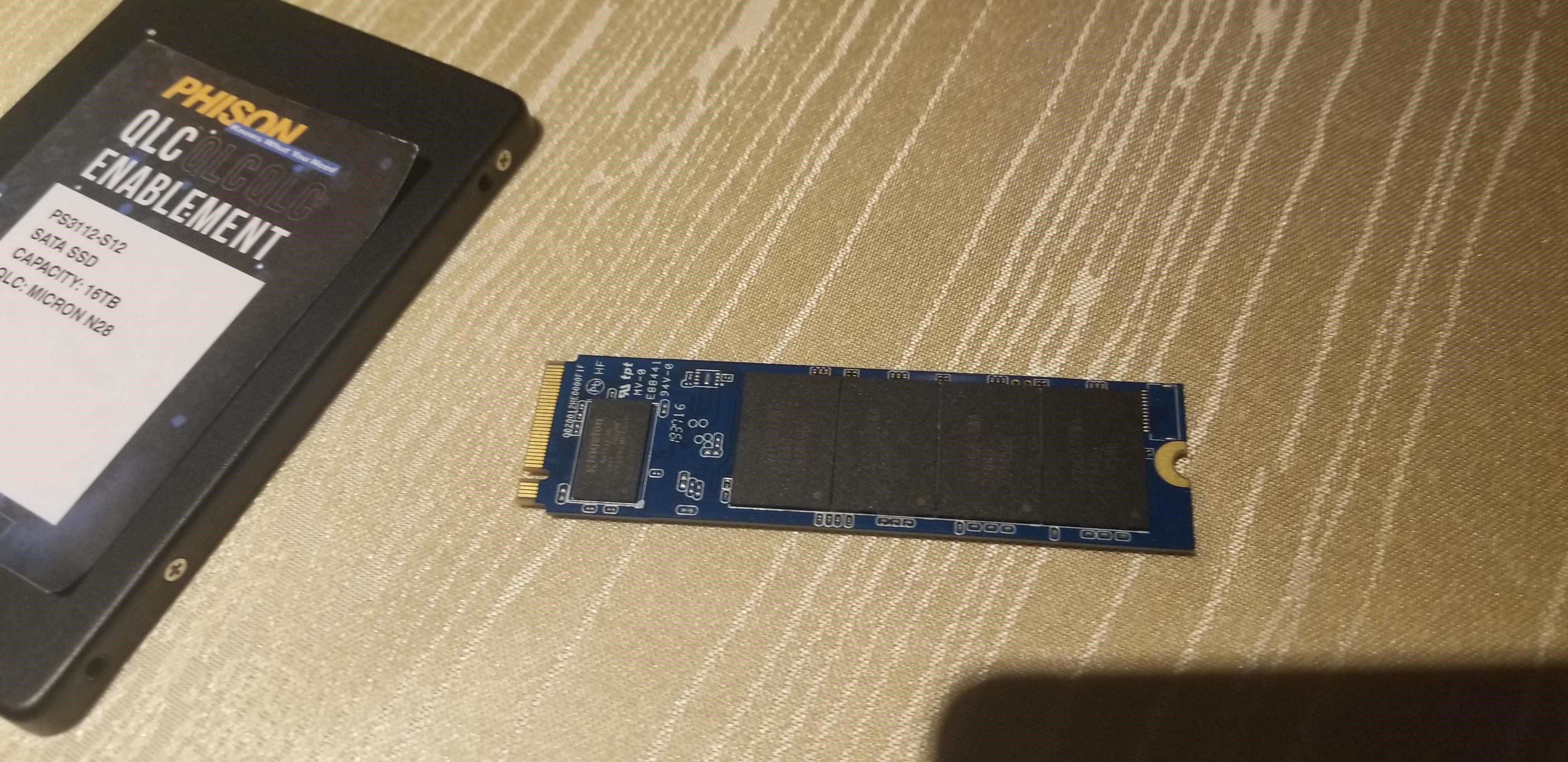
Here we can see Phison's reference design for 8TB NVMe SSDs using the same basic architecture as its proven E12 controller. Phison shrunk the packaging of its E12 SSD controller, even though it still uses the same 28nm manufacturing process, to create the E12S controller that consumes less space on the SSD, which then allows the company to cram in more NAND packages.
This drive consists of four Micron 96-layer QLC packages on either side of the PCB, for a total of eight emplacements. Each of these packages features eight die that provide a total of 1TB of usable capacity, which then naturally brings us to 8TB of total usable capacity.
Phison is bullish on the future of QLC flash for the consumer market, so it is focusing its consumer-facing products heavily on QLC flash, though the company still supports TLC and MLC. As we know, QLC enables these eye-popping densities, but most users won't need 8TB of storage on a single M.2 SSD. To address customers that don't need such high capacities, Phison also has a single-sided reference design that weights in at a 'mere' 4TB.
The E12S communicates over a PCIe 4.0 x4 connection to provide up to 3,500/3,000 MB/s of sequential read/write throughput and 490,000/680,000 random read/write IOPS.
Get Tom's Hardware's best news and in-depth reviews, straight to your inbox.
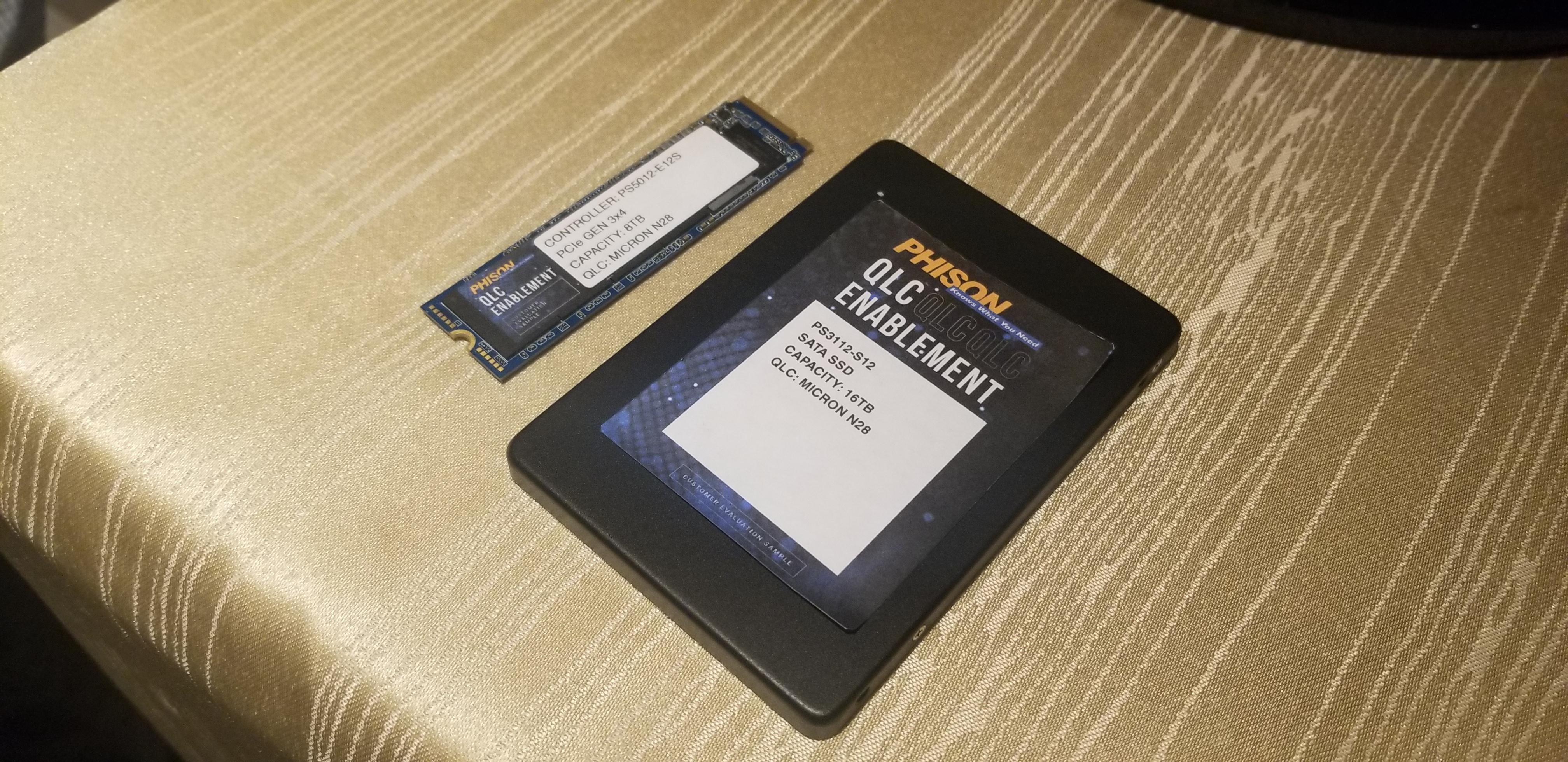
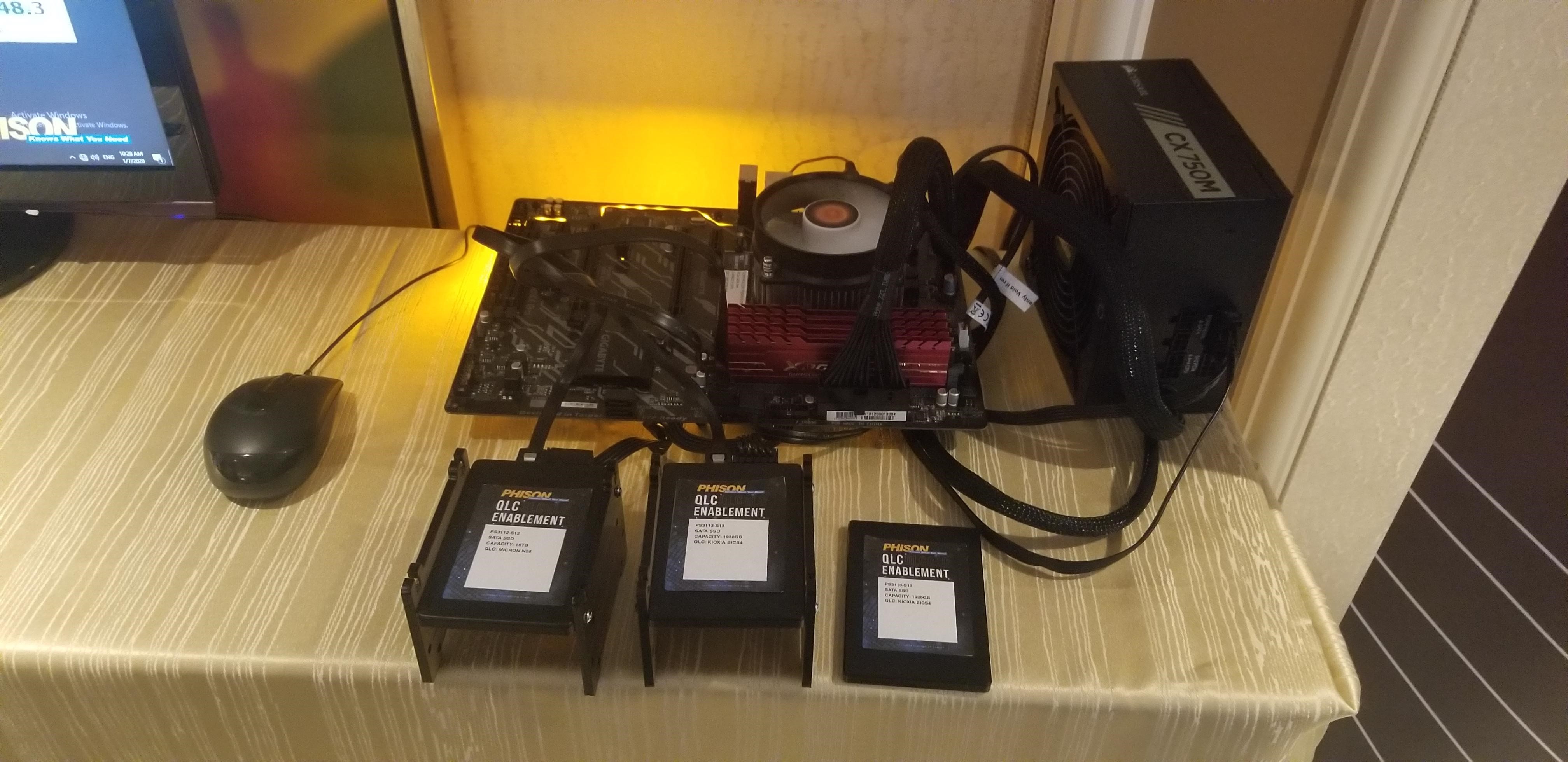

Here we see that same philosophy, and NAND, employed to create a massive 16TB SATA SSD. Phison will market this design primarily for NAS SSDs, but will also make it available for SSDs destined for the standard consumer market.
As with all SATA drives, the bus limits performance. This prototype drive still pulls off 550/530 MB/s of read/write throughput and 95,000/90,000 IOPS of random read/write performance, so it brings impressive performance along with its beefy capacity.
Phison doesn't produce SSDs for the retail market, instead, its controllers filter out and enable the third-party SSD ecosystem. That means the company doesn't set pricing for end devices, but given that the current going rate for flash is roughly nine cents per GB, the flash for a capacious 16TB model could run roughly $1,500, which is an amazingly cheap theoretical price considering how expensive flash was just a few short years ago. Of course, SSD vendors will charge more for the end devices, which we could see debut within the next few months, due to the price of development and other components, but cheaper QLC flash pricing enables higher densities at the most affordable price points we've seen yet.
Phison also had a demo with Enmotus's new tiering approach, which is infused directly into the firmware of the SSD, on display in its booth. We're meeting with Enmotus later this week, stay tuned.

Paul Alcorn is the Editor-in-Chief for Tom's Hardware US. He also writes news and reviews on CPUs, storage, and enterprise hardware.